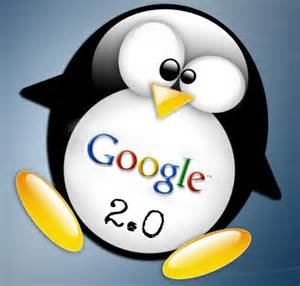Penguin 2.0: Google’s Latest Gamechanger

Google rolled out its Penguin 2.0 update recently, which will further revolutionize search engine optimization and potentially impact your business’ website.
And, like those cute little birds in the Antarctic, it doesn’t like spam.

What is Penguin 2.0?
Like Penguin 1.0, Penguin 2.0 is a means of controlling search engine results and
ensuring that unnecessarily over-optimized sites receive lower page rankings,
and ultimately, less traffic.
The reasoning behind the new penalties is simple: to make websites market to their targeted audiences,
not just any old internet browser who happens to stumble upon their page.
Like the previous Penguin update, users can participate in the revolution as well.
If you see a site that still has a high page rank despite being riddled with spam,
you can fill out Google’s spam report and cut ‘em down.
Is your site over-optimized?
You probably already know if you’re employing the tactics that would cause your page to get hit by Penguin 2.0’s penalties – yes, we’re looking at you,Mr.
Uses Too Much Exact Match Anchor text – but if you’re not quite sure, there are numerous ways to tell if your site is over-optimized.
Does your page contain an excessive amount of AdWords?
Do many of your inbound links originate from other pages you own? Wikipedia? Or user comments?
Is most of the text on your page ripped from someone else’s page?
These are just a few things that can come back to bite you. Some others can be found here in this Jeff Foxworthy-style list.
Who loses?
Though the update is only a few days old, patterns have already been noticed regarding who is being hit with penalties.
Among these SEO “losers” are gaming sites, big brand businesses and porn sites – and that stands to reason.
After all, who tries to spam you more than people trying to A. waste your time, B. take your money or C. excite you?
Here’s Search Metrics’ first look at the sites that have taken the greatest hit in the early days of Penguin 2.0.
It should be noted that the list doesn’t necessarily reflect the amount of traffic these sites are losing, but a strong correlation does obviously exist.
How to protect yourself?
First and foremost, you can protect your website and your business simply by offering relevant and valuable content to your users.
Eliminate from your page links from “bad neighborhoods.”
Just as hanging out with the wrong crowd puts a damper on you image, “hanging out” with these bad links could ruin the image of your website.
Use a PR checker to determine the validity of the links your page uses, and if you’ve already been penalized, get a well-known, credible site or two to vouch for you and prove you belong at the top.
And if all else fails, remember that you can always get some professional help.
Seeking the aid of someone who already knows their way around a penguin can save you a lot of time and really boost your business.
David Cormier is a blogger for AWOA, a leading web design and SEO company.
